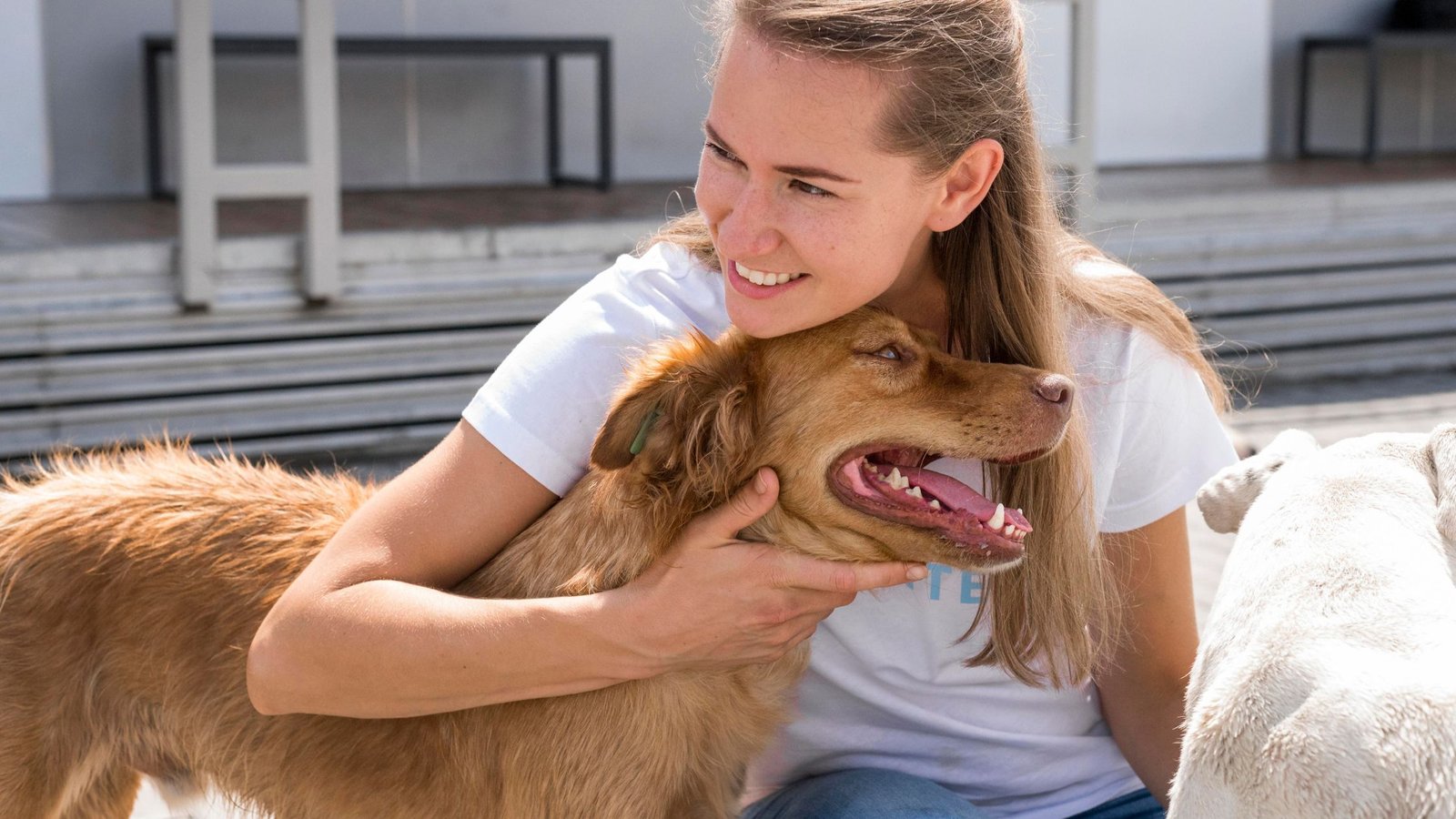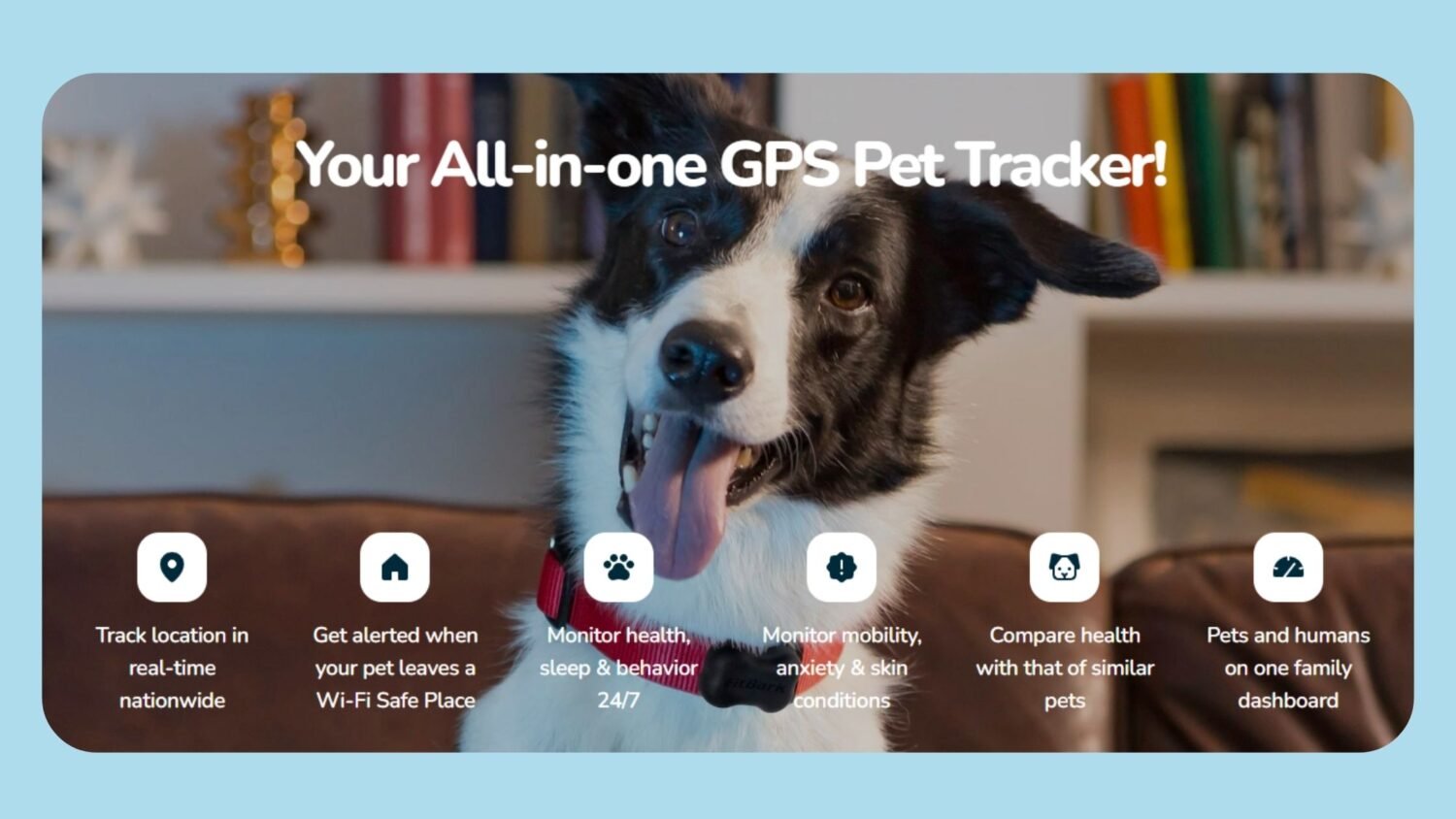your dog follows you everywhere you go? You’re not alone. Many furry companions have a habit of following their owners all around! there are a few reasons why this might be.

WHY MY DOG IS ALWAYS FOLLOWING ME?
Dogs have a strong desire for social bonding. Being near you makes them feel content and safe. It’s their way of strengthening the bond and feeling like part of the family pack. This behavior is especially common in puppies and young dogs. But even adult dogs may follow owners out of a deep attachment and need for companionship.
Social Bonding
One of the biggest reasons why dogs follow their owners is because they want to be close. Dogs are pack animals, and they feel secure when around their pack members. Tailing you is your dog’s way of showing their love and trust. They find comfort in your presence, and it’s a natural instinct for them to stick close by.
Security
Another key reason dogs follow owners is for a sense of security. If your dog has faced trauma like abandonment or abuse, they’ll want to stay near you more often. Following provides stability and safety. Dogs are den animals, and you represent their trusted den.
When alone, some dogs may become anxious or stressed. Sticking by your side helps ease those feelings. They view you as a protector and safe haven. Even confident dogs appreciate having their trusted human nearby for emotional assurance. This behavior allows them to feel grounded and secure in an unpredictable world.
Attention
Sometimes dogs follow to seek attention from their favorite humans. If you frequently give them attention when they trail you, it reinforces the behavior. They learn it’s an effective way to get what they crave – your undivided focus and affection.
Be mindful of how you respond when your pup follows you. Inadvertently rewarding the behavior with treats, pets or playtime can make it persist. It’s best to praise and reinforce your dog when they give you space, so they don’t develop overdependence.
Boredom
A bored dog may start following you in hopes of finding entertainment. If they lack proper exercise and mental stimulation, they’ll seek ways to amuse themselves. Following you becomes an activity to relieve boredom and restlessness.
Dogs are intelligent animals who need outlets for their physical and mental energy. Without enough playtime, walks or enrichment toys, your furry friend may trail you nonstop. Be sure to provide plenty of daily exercise and interactive games to keep them engaged and happy.
Medical Conditions
In some cases, excessive following could stem from an underlying medical issue. Dogs with anxiety disorders or cognitive problems may display clingy behaviors. They may feel compelled to constantly stay near their owners for comfort and security.
If your dog’s following seems abnormally excessive, it’s wise to consult your vet. They can rule out potential medical causes like cognitive decline, vision/hearing loss or separation anxiety. With proper treatment and management, your pup’s quality of life can improve.

WHAT TO DO IF YOUR DOG IS ALWAYS FOLLOWING YOU
Dogs have an innate desire to be close to their owners. If your furry friend is constantly trailing you, it’s a sign of their strong bond and attachment. However, excessive following can become bothersome.
How to gently discourage this behavior
- Don’t give them attention when they follow. It may seem counterintuitive, but ignoring your dog when they shadow you can help break the cycle of reinforcement. By not providing rewards like petting or treats, they’ll eventually learn that following doesn’t yield the desired response.
- Engage them with regular exercise and mental stimulation. Dogs who lack physical and mental enrichment often seek out activity by trailing their owners. Provide plenty of playtime, interactive toys, and puzzle feeders to keep their minds and bodies occupied. A tired, mentally-engaged pup is less likely to obsessively follow you around.
- Create a safe, secure environment. Dogs may follow out of anxiety or insecurity. Ensure their living space is comfortable, with cozy beds, engaging toys, and access to secure areas like crates or enclosed rooms. This can help alleviate stress and foster independence.
- If the behavior persists or seems unusual, consult a vet. Excessive following can sometimes indicate an underlying medical condition, like cognitive decline or anxiety disorders. A veterinary examination can rule out any health issues contributing to the behavior.

DECODING DOG COMPANIONSHIP
The tendency of dogs to follow their owners is a heartwarming aspect of the unique bond between humans and canines. This article explores the most common questions about why dogs exhibit this endearing behavior, delving into the psychological, social, and emotional reasons behind their desire for our companionship.
The Allure of Dog Attachment
The close relationship between dogs and humans has captivated people for centuries. Canines often display behaviors that reflect their deep attachment to their owners, and following us is one of the most noticeable expressions of this affection. Understanding the underlying motivations behind this behavior can deepen our appreciation for the special connection we share with our four-legged friends.
Pack Instinct and Social Nature
Dogs are pack animals by nature. In the wild, they live in groups, and this social structure has carried over to their domesticated lives. When a dog follows you, it’s an extension of their pack instinct. They want to be near their “pack” – in this case, their human family, which they consider their pack members.
Safety and Security
Dogs often follow their owners because it makes them feel safe and secure. Your presence offers protection and reassurance. They trust you to keep them out of harm’s way, and staying close is their way of seeking that safety.
Seeking Attention and Affection
Dogs are social creatures that thrive on interaction and affection. Following you is their way of seeking attention and affection. They enjoy being near you, receiving pets, belly rubs, and the warmth of your presence.

COMMON QUESTIONS ABOUT DOGS FOLLOWING US
Why My Dog Is Always Following Me When I Go To The Bathroom?
Following you to the bathroom is an extension of their pack instinct and need for companionship. It’s a place where you might temporarily leave the pack, and your dog doesn’t want to be excluded.
Is it a sign of separation anxiety?
Not necessarily. While excessive following, especially when it’s accompanied by distress when you leave, can be a sign of separation anxiety, most dogs follow their owners out of affection and social nature rather than anxiety.
How can I encourage independence in my dog?
Helping dogs feel secure and independent is vital. Slowly introduce them to being alone through crate training. Provide interactive toys that keep them occupied. This gradual approach prevents anxiety when you’re away.
Nurturing the Bond with Your Loyal Companion
In essence, the reason why dogs follow us is deeply rooted in their social nature, ingrained pack mentality, and profound desire for companionship, security, and affection. This following behavior is a heartwarming reflection of the profound bond and attachment that dogs form with their human families. Nurturing this unbreakable bond involves understanding and appreciating their innate need for closeness while simultaneously promoting healthy independence when necessary.
By recognizing and embracing the emotional underpinnings that drive your dog’s following behavior, you can deepen the unbreakable bond you share and ensure that both you and your loyal companion enjoy a fulfilling, affectionate, and harmonious relationship. By implementing these insightful tips, you can gently discourage excessive following and create a more relaxed, balanced environment that fosters mutual understanding and contentment.
Want to track your furry friend’s whereabouts? Get a dog collar with GPS!
Follow your pup’s adventures on your smartphone’s dog health app.
Click the sponsored link below to learn more about this nifty gadget!
“ Visit the sponsored product at our store “




